

Over the past few years there’s been an enormous influx of browser-based games that cater to both the casual audience and gamers who might not have the best PCs. They allow for a quick MMORPG fix without all of the time and hardware constraints that a game like Final Fantasy XIV: A Realm Reborn contains. While this might sound like a great alternative to the generally intense MMORPG genre, the fact is that most browser-based games are simply created as cash cows and have little to no gameplay depth at all. In this week’s rendition of Versus, we’re going to take a look at two of the more popular browser-based games published by R2Games: Wartune and League of Angels.
The most disappointing aspect of almost every game published by R2Games is how player interaction in handled. Most of the time, gameplay consists of clicking “complete quest” on your screen and watching the character move from point A to point B. This is true with both Wartune and League of Angels, however, it seems to be a bit worse off in the latter. In League of Angels there’s literally no reason to explore anything because the computer will take you on the quickest and most efficient path. In Wartune, however, there are some slightly hidden objects while clearing the campaign that do provide a bonus when found. Furthermore, players do occasionally have to click to move in some of the dungeons, so the entire game isn’t entirely auto-completed for you. This might not seem like a big difference, but after playing League of Angels, it’ll almost feel like an open-world environment.
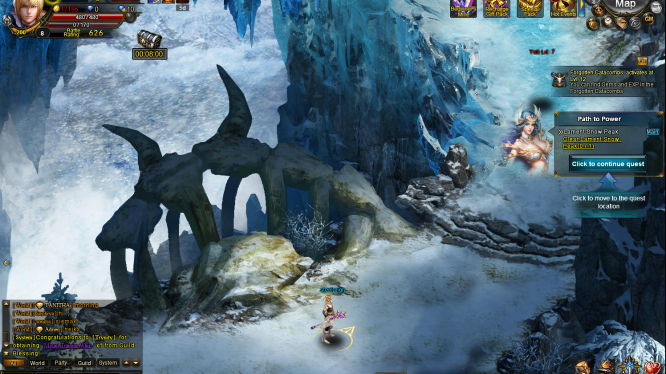
Both games rely on a standard click-to-complete theme that isn’t terribly interactive.
In addition to the standard RPG experience, Wartune also adds a kingdom building portion to the gameplay. While many similar benefits, such as troops and crops, are handled through menus in League of Angels, being able to see your city grow grants a sense of achievement to players that isn’t noticed by a simple level up in a hidden menu system. Besides the standard campaign, both games include dungeons, raids, side quests and all sorts of additional ways to play the game, but neither does anything that hasn’t been see many times before. The biggest difference in gameplay is that Wartune actually makes it feel like you’re playing a game.
There really isn’t a whole lot to say about the combat systems here. Both games use fairly typical skill trees that include both passive and active skills. There are also troops that you can hire to protect you, and in League of Angels various angels with special skills can be recruited to protect your character. They even offer the exactly same classes: Warrior, Mage and Archer. That’s where the similarities stop, however, and the combat variance becomes completely one-sided. In League of Angels the player has literally no control over the combat once a fight begins. There aren’t options to activate any skills or even choose which opponent is targeted. What makes this even worse is the fact that these fights can’t even be skipped; the only thing worse than not being able to participate in a game is having to watch the same fights over and over.
Thankfully, Wartune’s combat system isn’t quite as offensive. Players do have control over which skills are used during combat and cooldowns can be saved by opting to auto-attack. Moreover, there can even be some strategy involved in the multiplayer dungeons at higher levels of the game. Since the mage can heal, there can be a healer, tank, DPS trinity that isn’t normally seen in these types of browser games. This makes the combat in Wartune feel much more rewarding as player input can make the difference between victory and defeat.
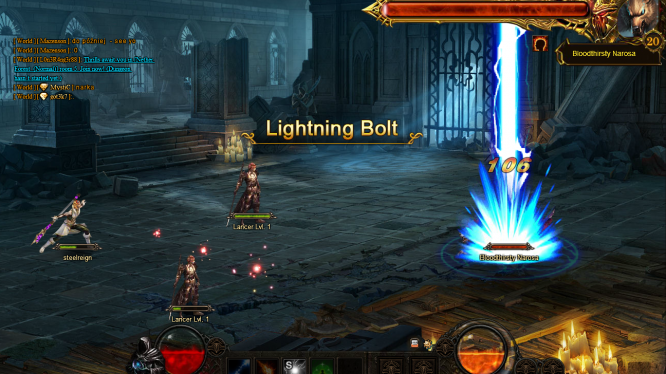
Being able to choose skills in game puts Wartune miles ahead of League of Angels.
When it comes to browser games, money is the key. Neither game escapes from the terrible free-to-play model that rewards players for how much they spend on a tiered system. Not only do players get the benefits of their purchase, but they also obtain V.I.P. levels that provide bonuses such as exclusive mounts, quests, gifts, and faster building cooldowns. The initial reward for purchasing currency usually provides an incredibly powerful equipment upgrade such as a weapon or jewelry that just can’t be matched by other players at the same level. These bonuses eventually diminish as the game goes on, but the early reward for spending is huge.
There aren’t just cosmetic options or slight experience bonuses that can be purchased with premium currency either. Raw power in the form of equipment and upgrade materials can be purchased from the shop. This can create a massive rift between paying and free players that can’t even be compensated for through additional playing time. The disparity becomes even worse once PvP is involved. Not having any input on the outcome of a battle can be incredibly frustrating and usually boils down to who has spent the most time or money. This issue is curbed slightly in Wartune because of the control over skills, but playing strategically usually won’t compensate for opponents who have dropped an extensive amount of cash. When toxic microtransactions are involved, nobody wins.
Finally, something that League of Angels is good at. It feels like the important aspects in League of Angels were essentially neglected and instead we get a game that’s packed with ways to kill time. These include a gem matching game (basically a watered down version of Bejeweled), Tidal Pool, Wyrm Races, gardens, card games and many other things to keep players distracted. Unfortunately, there’s very little depth in any of these games and they’re mostly to keep players around just a little bit longer.
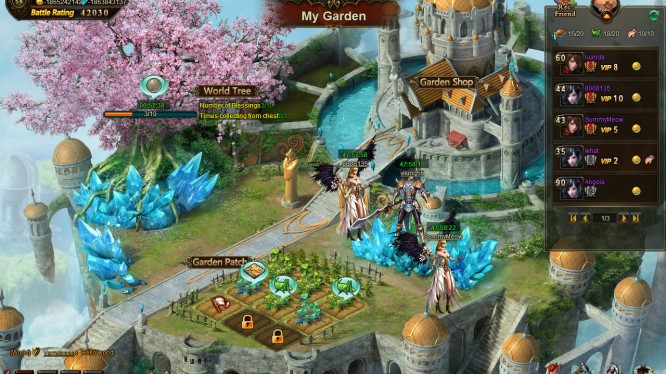
What better way to spend your time than tending a virtual garden?
This really shouldn’t come to the surprise of anyone who’s played both of these games. Neither one is particularly genre changing, but Wartune does have a few redeeming qualities. On the other hand, League of Angels is an almost entirely automated game that fails across the board. Instead of relying on gimmicky minigames and shiny thing to click on, Wartune delivers a decent combat system when compared to most other browser games and has enough real content to keep players involved for quite a while.


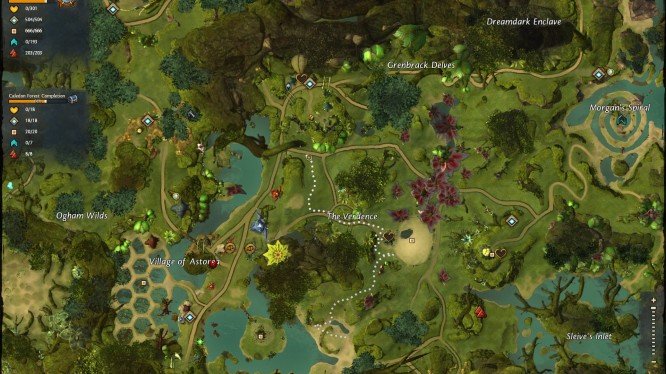

 E3 2015: Overall Impressions
E3 2015: Overall Impressions WoW Wednesday: World of (Robin) Williams .
WoW Wednesday: World of (Robin) Williams .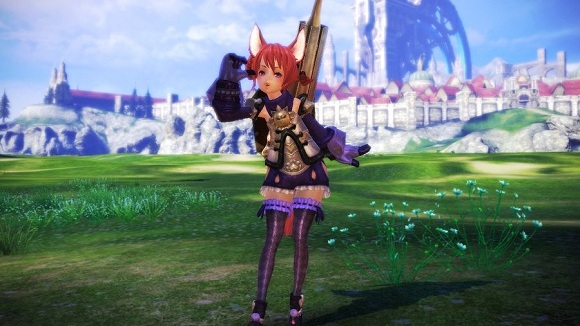 TERA Online: How to Grief Noobs .
TERA Online: How to Grief Noobs .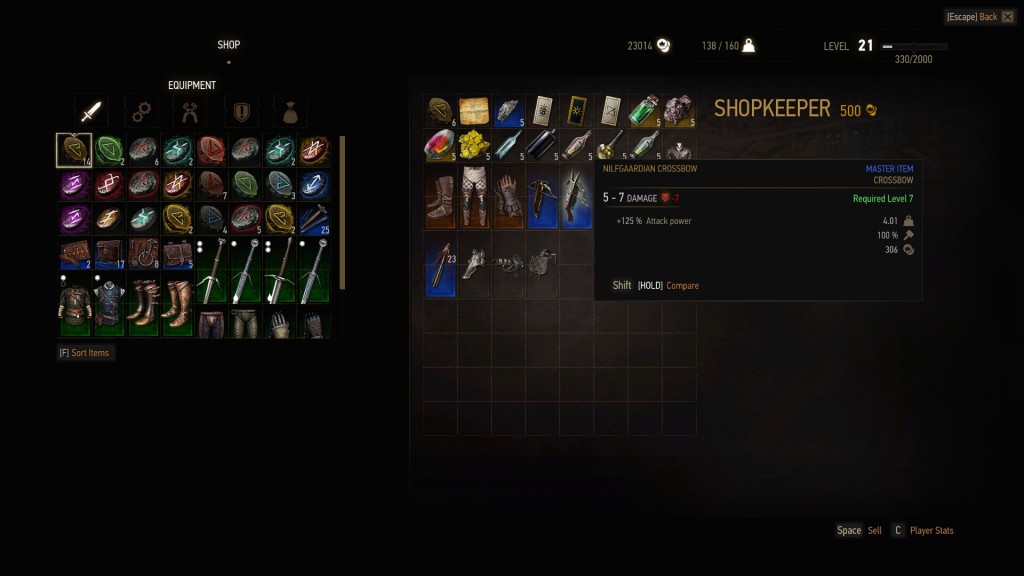 The Witcher 3 Guide: How To Get Elite Crossbow Set DLC, Location And Stats
The Witcher 3 Guide: How To Get Elite Crossbow Set DLC, Location And Stats Plants vs. Zombies 2: Surviving Level 9 of Big Wave Beach
Plants vs. Zombies 2: Surviving Level 9 of Big Wave Beach